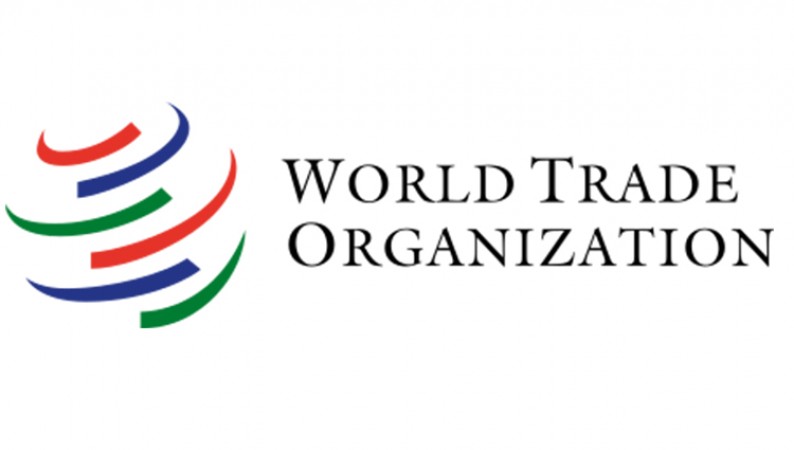
In an increasingly interconnected world, international trade plays a vital role in driving global economic growth and prosperity. To facilitate this intricate web of trade relations and resolve disputes effectively, the World Trade Organization (WTO) was established. This article explores the functions, importance, key principles, role in developing countries, challenges faced, and future prospects of the WTO.
Understanding the World Trade Organization (WTO)
What is the WTO?
The WTO is an international organization that deals with the global rules of trade between nations. It was established in 1995 and currently has 164 member countries, accounting for over 98% of world trade. The organization's primary goal is to ensure that trade flows as smoothly, predictably, and freely as possible.
Objectives of the WTO
The fundamental objectives of the WTO are to facilitate trade, promote economic growth, and create a stable and predictable trading environment. It seeks to remove trade barriers and discriminatory practices, fostering fair and transparent trade relations.
The Functions of the WTO
Facilitating International Trade
The WTO plays a crucial role in facilitating international trade through various mechanisms. It encourages member countries to negotiate and lower tariffs, allowing goods and services to cross borders with fewer restrictions. By reducing trade barriers, the WTO promotes the concept of comparative advantage, where countries can focus on producing goods and services they are more efficient at, benefiting all participating nations.
Trade Dispute Resolution
Another significant function of the WTO is to provide a platform for resolving trade disputes among member countries. Disputes can arise when one country believes that another is violating trade agreements or engaging in unfair trade practices. The WTO's dispute settlement system offers an impartial and rules-based approach to resolve these conflicts.
The Importance of the WTO
Promoting Global Economic Growth
The WTO's commitment to open trade has contributed to global economic growth over the years. By facilitating the flow of goods and services across borders, the organization has stimulated economic activity and job creation worldwide.
Ensuring Fair Trade Practices
Fair trade is a cornerstone of the WTO's principles. Through its rules and agreements, the organization ensures that countries do not engage in discriminatory practices or unfairly subsidize their industries, promoting healthy competition in the global marketplace.
Handling Trade Disputes
The WTO's dispute settlement system has been instrumental in preventing trade wars and fostering a rules-based international trading system. When countries have disagreements over trade matters, they can seek resolution through the WTO's dispute settlement process, avoiding unilateral actions that could harm global trade.
Key Principles of the WTO
Non-Discrimination (Most-Favored-Nation and National Treatment)
The principle of non-discrimination is enshrined in the WTO's most-favored-nation (MFN) and national treatment rules. MFN requires that countries treat all trading partners equally, not favoring one over the other. National treatment ensures that foreign products and services are treated no less favorably than domestic ones once they enter a country's market.
Trade Liberalization
Trade liberalization, a central principle of the WTO, involves reducing trade barriers such as tariffs and quotas. By promoting openness and free trade, the WTO aims to boost global economic growth and enhance consumer welfare.
Predictability and Stability
The WTO provides predictability and stability to international trade by offering a transparent and rules-based trading system. Countries can rely on these rules to make informed decisions about their trade policies and investments.
The WTO's Role in Developing Countries
Technical Assistance and Capacity Building
Developing countries often face challenges in fully participating in international trade. The WTO provides technical assistance and capacity building to these nations, helping them build the necessary skills and infrastructure to engage effectively in global trade.
Special and Differential Treatment
Recognizing the unique challenges faced by developing countries, the WTO grants them special and differential treatment. This allows these nations to implement trade policies at a pace suitable to their specific economic circumstances.
Challenges Faced by the WTO
Criticisms and Controversies
The WTO has faced criticism from various quarters. Some argue that it prioritizes trade liberalization over other social and environmental concerns. Critics also point out that decision-making within the organization can be dominated by powerful countries, disadvantaging smaller and less influential nations.
Adapting to Modern Trade Challenges
The rapid pace of technological advancement and the rise of the digital economy present new challenges for the WTO. The organization must adapt to address issues such as e-commerce, data privacy, and intellectual property rights.
Future Prospects of the WTO
Reform and Modernization
To remain relevant and effective, the WTO must undergo reforms and modernize its approach to global trade. This may include updating existing agreements and negotiating new ones to address emerging issues.
Addressing Emerging Trade Issues
The WTO should proactively address emerging trade challenges, such as climate change, sustainable development, and the impact of artificial intelligence on trade. By doing so, it can continue to play a pivotal role in shaping the future of international trade.
The World Trade Organization plays a crucial role in facilitating international trade and resolving disputes among nations. Its commitment to promoting fair trade practices, along with its principles of non-discrimination and trade liberalization, has contributed to global economic growth and stability. While it faces challenges and criticisms, the WTO's adaptability and reform efforts will be essential in addressing modern trade issues and ensuring a prosperous future for global commerce.
WTO Talks on Food Subsidies Collapse, Leaving Global Food Security in Jeopardy
China's Exports Grow at Slowest Pace in 17 Months
India Emerges as Global Hub for Rupee Trading: 22 Countries opened special bank accounts